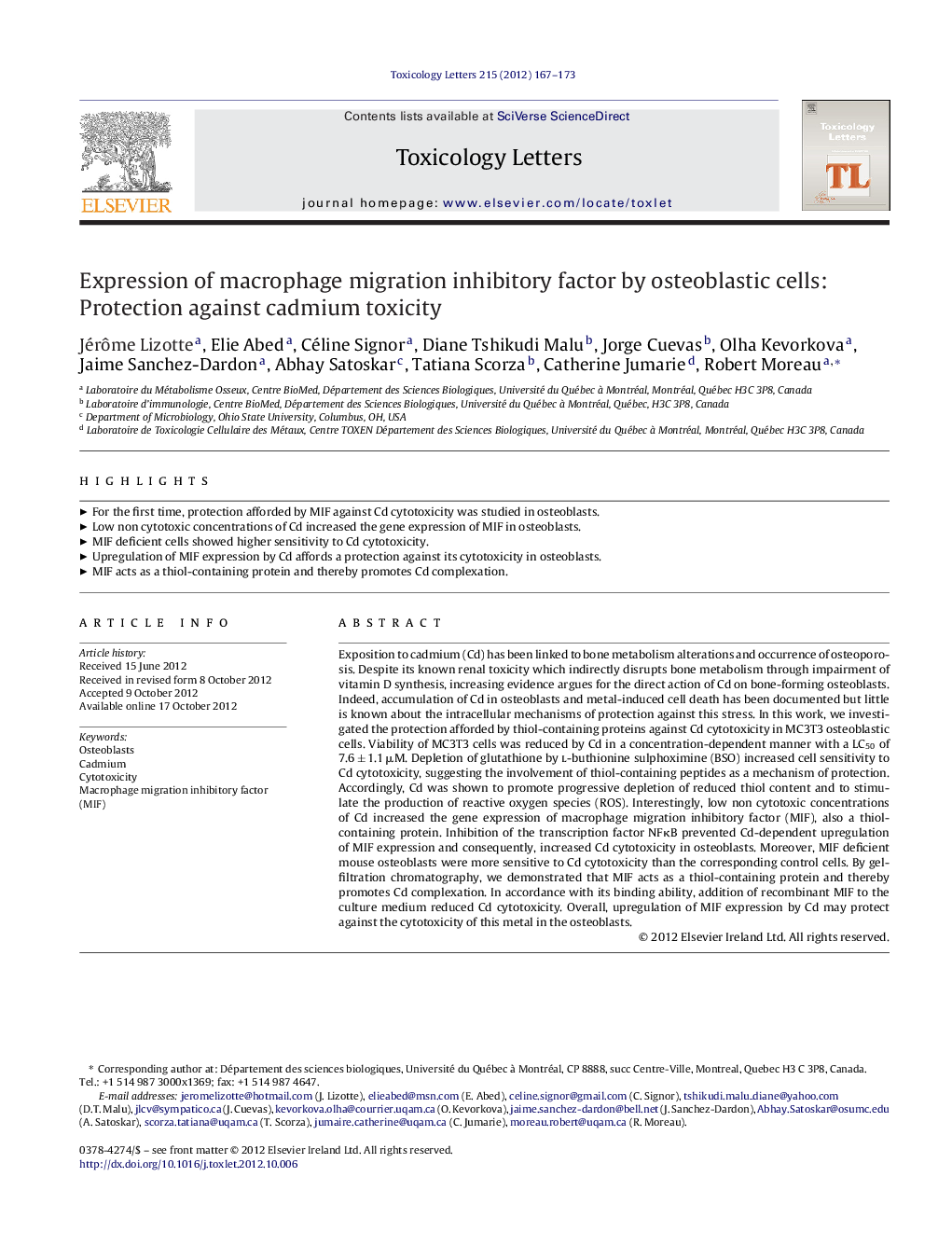| Article ID | Journal | Published Year | Pages | File Type |
|---|---|---|---|---|
| 2599444 | Toxicology Letters | 2012 | 7 Pages |
Exposition to cadmium (Cd) has been linked to bone metabolism alterations and occurrence of osteoporosis. Despite its known renal toxicity which indirectly disrupts bone metabolism through impairment of vitamin D synthesis, increasing evidence argues for the direct action of Cd on bone-forming osteoblasts. Indeed, accumulation of Cd in osteoblasts and metal-induced cell death has been documented but little is known about the intracellular mechanisms of protection against this stress. In this work, we investigated the protection afforded by thiol-containing proteins against Cd cytotoxicity in MC3T3 osteoblastic cells. Viability of MC3T3 cells was reduced by Cd in a concentration-dependent manner with a LC50 of 7.6 ± 1.1 μM. Depletion of glutathione by l-buthionine sulphoximine (BSO) increased cell sensitivity to Cd cytotoxicity, suggesting the involvement of thiol-containing peptides as a mechanism of protection. Accordingly, Cd was shown to promote progressive depletion of reduced thiol content and to stimulate the production of reactive oxygen species (ROS). Interestingly, low non cytotoxic concentrations of Cd increased the gene expression of macrophage migration inhibitory factor (MIF), also a thiol-containing protein. Inhibition of the transcription factor NFκB prevented Cd-dependent upregulation of MIF expression and consequently, increased Cd cytotoxicity in osteoblasts. Moreover, MIF deficient mouse osteoblasts were more sensitive to Cd cytotoxicity than the corresponding control cells. By gel-filtration chromatography, we demonstrated that MIF acts as a thiol-containing protein and thereby promotes Cd complexation. In accordance with its binding ability, addition of recombinant MIF to the culture medium reduced Cd cytotoxicity. Overall, upregulation of MIF expression by Cd may protect against the cytotoxicity of this metal in the osteoblasts.
► For the first time, protection afforded by MIF against Cd cytotoxicity was studied in osteoblasts. ► Low non cytotoxic concentrations of Cd increased the gene expression of MIF in osteoblasts. ► MIF deficient cells showed higher sensitivity to Cd cytotoxicity. ► Upregulation of MIF expression by Cd affords a protection against its cytotoxicity in osteoblasts. ► MIF acts as a thiol-containing protein and thereby promotes Cd complexation.
